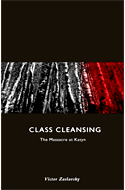James V. Schall’s “Revelation and Political Philosophy: On Locating the Best City” appears in Telos 148. William Tullius follows up with some questions.
William Tullius: You wrote in your article that: “Political philosophy, at its best, is the discipline strategically located to reflect on how God, cosmos, man, and polity belong together.” Yet, fundamentally, political philosophy is “aware of its own inability to answer its own highest questions”; namely, in what does the “best city” consist. The answer to political philosophy is supplied by revelation, which answers that political philosophy is capable of recognizing as an intelligible gift. If, however, political philosophy is subject to this sort of limit from the start such that it is dependent for its own answers upon something higher, what do you see as the need for political philosophy in the first place and what does this imply for the relation between faith and reason?
James V. Schall: Political philosophy is not subject to any limits “from the start.” It arrives at its limits—my book is called precisely, At the Limits of Political Philosophy—by seeking itself to answer all its own questions. Philosophy must first be philosophy. We need political philosophy “in the first place” so that we know what it knows and, also, what it does not know but would like to know. Unless this reflection on what is known and what is not known by the discipline takes place in an inquiring mind, revelation has nothing to which to address itself. The great phrase fides quaerens intellectum means exactly that some intellect must be actively asking itself what it knows about political things. Thus, I would say that faith cannot be faith until reason becomes itself active reason knowing what it can know. Once this relationship is clarified or spelled out, we can wonder whether philosophy does not become more philosophy under this impetus.



